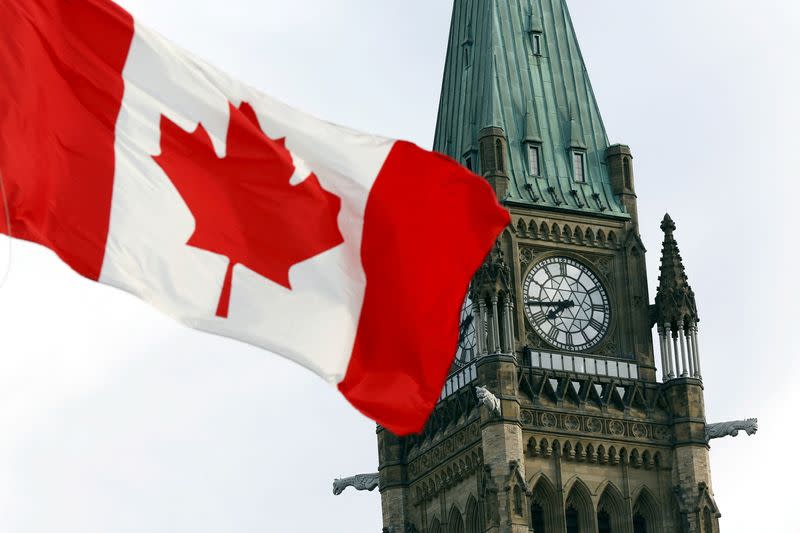Canada's capital gains tax rise will further knock productivity, say economists

By Fergal Smith
TORONTO (Reuters) - Canada's plan to raise taxes on the savings of wealthy people and corporations is likely to hold back investment, potentially adding to the productivity malaise that has held back economic growth in recent years, say economists.
In a bid to increase revenue to pay for housing and other programs, Canada's annual budget on Tuesday proposed increasing the share of capital gains that is subject to taxation to two-thirds from one-half for people with annual investment profits greater than C$250,000 ($181,752) as well as for companies and trusts.
Raising capital gains taxes could discourage savings, say economists, a key driver of business investment, which fell in the fourth quarter for the sixth time in the last seven quarters and has been unable to sustain a move above the 2014 peak.
"The Canadian economy needs savings and it's the relatively wealthy that now have less incentive to save — or more incentive to move those savings out of the country," Derek Holt, head of capital markets economics at Scotiabank, said in a note.
"Less reward after-tax is likely to discourage risk-taking. Discourage investment. Discourage anything that might address Canada's productivity problems."
Last month, Bank of Canada Deputy Governor Carolyn Rogers said that Canada's record of poor productivity growth is an "emergency," adding that businesses urgently needed to boost investment to address the problem.
"What's still missing is a clear plan to promote productivity and restore economic growth in Canada. Canada continues to slip further behind our competitors in both of these categories," Perrin Beatty, president and CEO at the Canadian Chamber of Commerce, said in a statement.
"Our lagging productivity and stalled GDP growth means Canadians are becoming collectively poorer and working harder to just remain where they are today."
The Liberal government of Prime Minister Justin Trudeau says that the new tax measure will affect 0.13% of the population and make the system more fair.
Still, Canadian GDP per capita, a key measure of living standards, has stagnated in recent years as the economy relied on historically high levels of immigration to boost activity.
"Increasing the cost of capital might appear to be good politics to some, but it is bad economic policy for all," Goldy Hyder, Business Council of Canada president and CEO, said in a statement.
"Wealth redistribution is not wealth creation and the spending measures introduced today will saddle Canadians with debt without encouraging the strong and sustained economic growth they deserve."
($1 = 1.3755 Canadian dollars)
(Reporting by Fergal Smith; Editing by Alexandra Hudson)

 Yahoo Finance
Yahoo Finance 